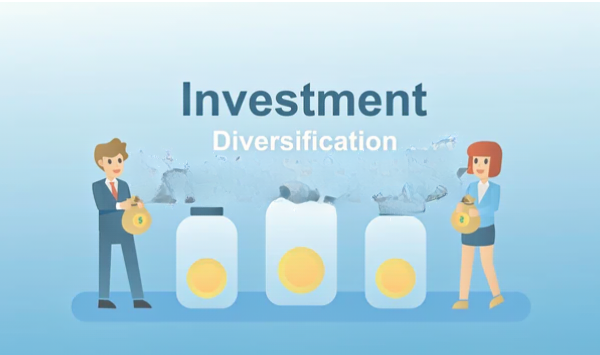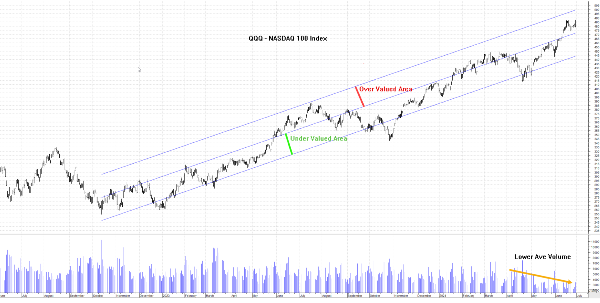Getting started with investing in stocks may appear overwhelming, to beginners. When equipped with guidance and access to resources it can turn into a fulfilling and enlightening journey. This detailed handbook aims to provide insights into the fundamentals of stock investment provide advice on how to begin and suggest tools, for assistance.
How Do I Start Learning About Stocks?
Educate Yourself: Before you venture into the world of stock trading it's crucial to grasp the fundamentals. Begin by familiarizing yourself with what stocks entail how the stock market functions and the different kinds of stocks that are there.
Set Clear Goals: Why do you want to invest in stocks? Are you aiming to grow your wealth plan, for retirement or meet financial objectives? Your approach, to investing, will vary depending on your objectives.
Choose a Brokerage Account: To engage in stock trading you'll have to set up a brokerage account. Take the time to explore brokerage firms to discover the one that aligns with your preferences regarding charges, customer support, and available resources.
Start with a Plan: Create an investment strategy. Determine the amount of funds you're investing and your tolerance, for risk.
Learn the Basics of Financial Statements: It's important to grasp the significance of statements when assessing companies. Get familiar, with interpreting balance sheets income statements, and cash flow statements.
Practice with Simulated Trading: Prior, to committing funds it's advisable to utilize a stock market simulation platform, for honing your trading skills. This approach allows you to familiarize yourself with market dynamics without putting your capital at stake.
Read Books About Investing for Beginners: Many successful investors have authored a variety of books offering insights and strategies. Some recommended titles include:
- "The Intelligent Investor" by Benjamin Graham
- "A Random Walk Down Wall Street" by Burton G. Malkiel
- "One Up On Wall Street" by Peter Lynch
Can You Learn Stocks on Your Own?
Yes, you can learn stocks on your own. Here’s how:
Online Courses and Tutorials: Numerous online platforms provide classes, on stock market investment including Coursera, Udemy, and Khan Academy. These courses cater to individuals at skill levels from beginners, to learners.
Financial News and Websites: Keep yourself informed about the updates, in the financial realm. Platforms such, as Investopedia, Yahoo Finance, and Bloomberg offer content and analysis.
Investment Forums and Communities: Consider participating in forums and online communities where you can engage with investors seek advice and exchange thoughts. Platforms, like Reddit r/stocks and the Bogleheads forum offer starting points for interactions.
Stock Market Apps: Numerous applications provide materials and virtual trading experiences. Platforms such, as Robinhood, Webull, and TD Ameritrade offer resources for learning and honing trading skills.
YouTube Channels and Podcasts: Many YouTube channels and podcasts focus on stock investing. Popular channels such, as Financial Education and Graham Stephan along with podcasts, like "Invest Like the Best" and "The Motley Fool " offer insights.
Which Stock is Best for Beginners?
For beginners, it's wise to start with stocks that are stable and have a history of good performance. Here are some tips for selecting beginner-friendly stocks:
Blue-Chip Stocks: These companies are known for their size, standing presence, and strong financial stability along, with a track record of performance. Some notable examples are Apple, Microsoft, and Johnson & Johnson.
Dividend-Paying Stocks: Businesses that offer dividend payments can offer a source of income. Seek out businesses, with a track record of dividends, over time.
Exchange-Traded Funds (ETFs): Investing in ETFs is a method to spread out your investments without the need to choose stocks. These funds follow an index, sector, or commodity. Some popular options are the SPDR S&P 500 ETF (SPY) and the Vanguard Total Stock Market ETF (VTI).
Consider Mutual Funds: Like exchange-traded funds (ETFs) mutual funds gather funds from investors to put into a varied collection of stocks. These funds are overseen by fund managers.
Consumer Staples: Companies that manufacture items, like food and household goods typically exhibit stability. For instance known companies, in this category are Procter & Gamble and Coca Cola.
Beginner Tips for Stock Investing

Start Small: Start with a sum of money that you're comfortable risking. As you grow more self-assured and knowledgeable you can slowly raise your investment.
Diversify Your Portfolio: Don't put all your eggs in one basket. Spread your investments across different sectors and industries to reduce risk.
Stay Informed: Stay updated on market news and trends by checking in on your investments and staying knowledgeable, about the companies you've put your money into.
Think Long-Term: Investing in stocks is most appropriate, for achieving long-term objectives. Resist the urge to seek gains. Instead, concentrate on gradually accumulating wealth over time.
Control Your Emotions: The stock market is known for its unpredictability. It's crucial to remain composed and avoid making choices influenced by shifts, in the market.
Reinvest Dividends: When you get dividends think about using them to purchase shares. This strategy could substantially boost your investment returns, in the run.
Diversify Your Stock Investment Portfolio

Diversification is a key strategy for managing risk in your investment portfolio. Here’s how you can diversify effectively:
Invest in Different Sectors: Diversify your investment portfolio by allocating funds to industries, like technology, healthcare, finance, and consumer goods. This strategy helps lower the chance of overexposure, to any sector.
Geographical Diversification: Exploring the possibility of investing in stocks, from countries could offer opportunities to capitalize on growth, across regions. Exchange-traded funds (ETFs) specializing in markets present an investment avenue worth considering.
Asset Allocation: It's important to spread your investments across types of assets, not stocks. Consider adding bonds, real estate, and commodities to your investment portfolio to manage risk and maximize returns.
Use Index Funds and ETFs: Investing in these funds provides diversification as they encompass a selection of stocks within a single investment.
Rebalance Regularly: Remember to check and fine-tune your investment mix to keep a portfolio. This way you can prevent any one investment from dominating your portfolio.
Set Your Stock Investment Budget
Setting a budget for your stock investments is crucial for financial planning and risk management. Here’s how to do it:
Determine Your Financial Goals: Determine your future objectives. This will guide you in determining the amount of funds to invest in stocks.
Assess Your Risk Tolerance: Know your comfort level, with risk. If you prefer to play it consider investing less in stocks and more in options such, as bonds.
Calculate Your Investment Amount: Choose a portion or percentage of your earnings that you feel at ease investing in stocks. Make sure this sum doesn't impact your day-to-day expenses or rainy-day fund.
Use Dollar-Cost Averaging: This approach includes putting a sum of money into investments, at intervals regardless of the current stock price. This method helps minimize the effects of market fluctuations and decreases the cost, per share gradually.
Monitor and Adjust: Make sure to check your budget and how your investments are doing. Change your budget as necessary depending on your status and the conditions of the market.
Conclusion
Starting your journey, into stock market investments as a beginner can lead to opportunities for growth. By learning to set objectives spreading out your investments and handling your finances sensibly you can confidently navigate the world of stocks. Keep in mind that patience and self-control play roles in achieving success in investing. Utilize resources such, as books, online classes, financial updates, and investment groups to enhance your understanding. With dedication and perseverance, you can acquire the expertise and abilities required to excel as a stock market investor.
Watch this video for more information:
https://youtu.be/Duppolvh7YY





















Getting started with investing in stocks may appear overwhelming, to beginners. When equipped with guidance and access to resources it can turn into a fulfilling and enlightening journey. This detailed handbook aims to provide insights into the fundamentals of stock investment provide advice on how to begin and suggest tools, for assistance.
How Do I Start Learning About Stocks?
Educate Yourself: Before you venture into the world of stock trading it's crucial to grasp the fundamentals. Begin by familiarizing yourself with what stocks entail how the stock market functions and the different kinds of stocks that are there.
Set Clear Goals: Why do you want to invest in stocks? Are you aiming to grow your wealth plan, for retirement or meet financial objectives? Your approach, to investing, will vary depending on your objectives.
Choose a Brokerage Account: To engage in stock trading you'll have to set up a brokerage account. Take the time to explore brokerage firms to discover the one that aligns with your preferences regarding charges, customer support, and available resources.
Start with a Plan: Create an investment strategy. Determine the amount of funds you're investing and your tolerance, for risk.
Learn the Basics of Financial Statements: It's important to grasp the significance of statements when assessing companies. Get familiar, with interpreting balance sheets income statements, and cash flow statements.
Practice with Simulated Trading: Prior, to committing funds it's advisable to utilize a stock market simulation platform, for honing your trading skills. This approach allows you to familiarize yourself with market dynamics without putting your capital at stake.
Read Books About Investing for Beginners: Many successful investors have authored a variety of books offering insights and strategies. Some recommended titles include:
Can You Learn Stocks on Your Own?
Yes, you can learn stocks on your own. Here’s how:
Online Courses and Tutorials: Numerous online platforms provide classes, on stock market investment including Coursera, Udemy, and Khan Academy. These courses cater to individuals at skill levels from beginners, to learners.
Financial News and Websites: Keep yourself informed about the updates, in the financial realm. Platforms such, as Investopedia, Yahoo Finance, and Bloomberg offer content and analysis.
Investment Forums and Communities: Consider participating in forums and online communities where you can engage with investors seek advice and exchange thoughts. Platforms, like Reddit r/stocks and the Bogleheads forum offer starting points for interactions.
Stock Market Apps: Numerous applications provide materials and virtual trading experiences. Platforms such, as Robinhood, Webull, and TD Ameritrade offer resources for learning and honing trading skills.
YouTube Channels and Podcasts: Many YouTube channels and podcasts focus on stock investing. Popular channels such, as Financial Education and Graham Stephan along with podcasts, like "Invest Like the Best" and "The Motley Fool " offer insights.
Which Stock is Best for Beginners?
For beginners, it's wise to start with stocks that are stable and have a history of good performance. Here are some tips for selecting beginner-friendly stocks:
Blue-Chip Stocks: These companies are known for their size, standing presence, and strong financial stability along, with a track record of performance. Some notable examples are Apple, Microsoft, and Johnson & Johnson.
Dividend-Paying Stocks: Businesses that offer dividend payments can offer a source of income. Seek out businesses, with a track record of dividends, over time.
Exchange-Traded Funds (ETFs): Investing in ETFs is a method to spread out your investments without the need to choose stocks. These funds follow an index, sector, or commodity. Some popular options are the SPDR S&P 500 ETF (SPY) and the Vanguard Total Stock Market ETF (VTI).
Consider Mutual Funds: Like exchange-traded funds (ETFs) mutual funds gather funds from investors to put into a varied collection of stocks. These funds are overseen by fund managers.
Consumer Staples: Companies that manufacture items, like food and household goods typically exhibit stability. For instance known companies, in this category are Procter & Gamble and Coca Cola.
Beginner Tips for Stock Investing
Start Small: Start with a sum of money that you're comfortable risking. As you grow more self-assured and knowledgeable you can slowly raise your investment.
Diversify Your Portfolio: Don't put all your eggs in one basket. Spread your investments across different sectors and industries to reduce risk.
Stay Informed: Stay updated on market news and trends by checking in on your investments and staying knowledgeable, about the companies you've put your money into.
Think Long-Term: Investing in stocks is most appropriate, for achieving long-term objectives. Resist the urge to seek gains. Instead, concentrate on gradually accumulating wealth over time.
Control Your Emotions: The stock market is known for its unpredictability. It's crucial to remain composed and avoid making choices influenced by shifts, in the market.
Reinvest Dividends: When you get dividends think about using them to purchase shares. This strategy could substantially boost your investment returns, in the run.
Diversify Your Stock Investment Portfolio
Diversification is a key strategy for managing risk in your investment portfolio. Here’s how you can diversify effectively:
Invest in Different Sectors: Diversify your investment portfolio by allocating funds to industries, like technology, healthcare, finance, and consumer goods. This strategy helps lower the chance of overexposure, to any sector.
Geographical Diversification: Exploring the possibility of investing in stocks, from countries could offer opportunities to capitalize on growth, across regions. Exchange-traded funds (ETFs) specializing in markets present an investment avenue worth considering.
Asset Allocation: It's important to spread your investments across types of assets, not stocks. Consider adding bonds, real estate, and commodities to your investment portfolio to manage risk and maximize returns.
Use Index Funds and ETFs: Investing in these funds provides diversification as they encompass a selection of stocks within a single investment.
Rebalance Regularly: Remember to check and fine-tune your investment mix to keep a portfolio. This way you can prevent any one investment from dominating your portfolio.
Set Your Stock Investment Budget
Setting a budget for your stock investments is crucial for financial planning and risk management. Here’s how to do it:
Determine Your Financial Goals: Determine your future objectives. This will guide you in determining the amount of funds to invest in stocks.
Assess Your Risk Tolerance: Know your comfort level, with risk. If you prefer to play it consider investing less in stocks and more in options such, as bonds.
Calculate Your Investment Amount: Choose a portion or percentage of your earnings that you feel at ease investing in stocks. Make sure this sum doesn't impact your day-to-day expenses or rainy-day fund.
Use Dollar-Cost Averaging: This approach includes putting a sum of money into investments, at intervals regardless of the current stock price. This method helps minimize the effects of market fluctuations and decreases the cost, per share gradually.
Monitor and Adjust: Make sure to check your budget and how your investments are doing. Change your budget as necessary depending on your status and the conditions of the market.
Conclusion
Starting your journey, into stock market investments as a beginner can lead to opportunities for growth. By learning to set objectives spreading out your investments and handling your finances sensibly you can confidently navigate the world of stocks. Keep in mind that patience and self-control play roles in achieving success in investing. Utilize resources such, as books, online classes, financial updates, and investment groups to enhance your understanding. With dedication and perseverance, you can acquire the expertise and abilities required to excel as a stock market investor.
Watch this video for more information:
https://youtu.be/Duppolvh7YY